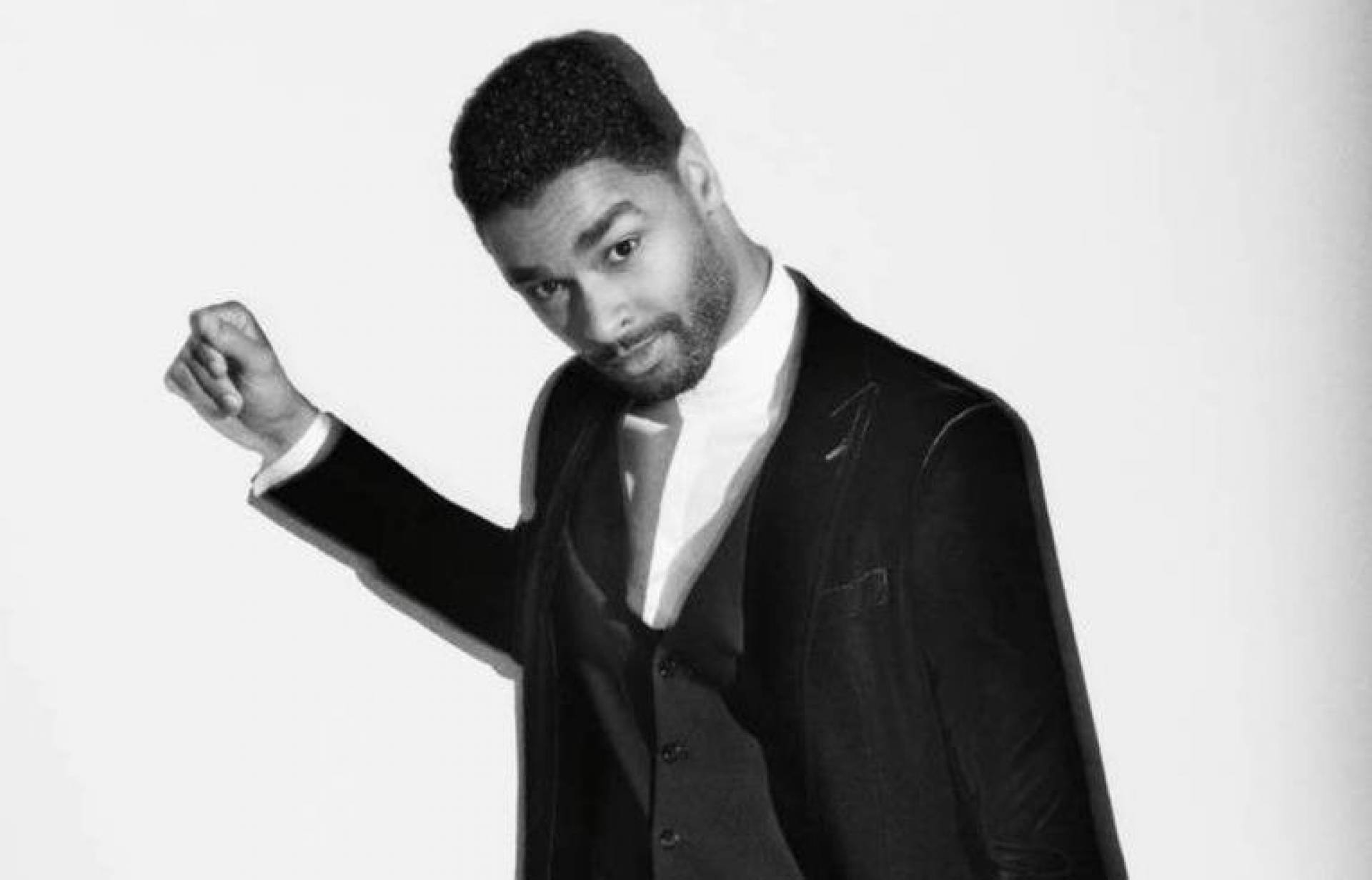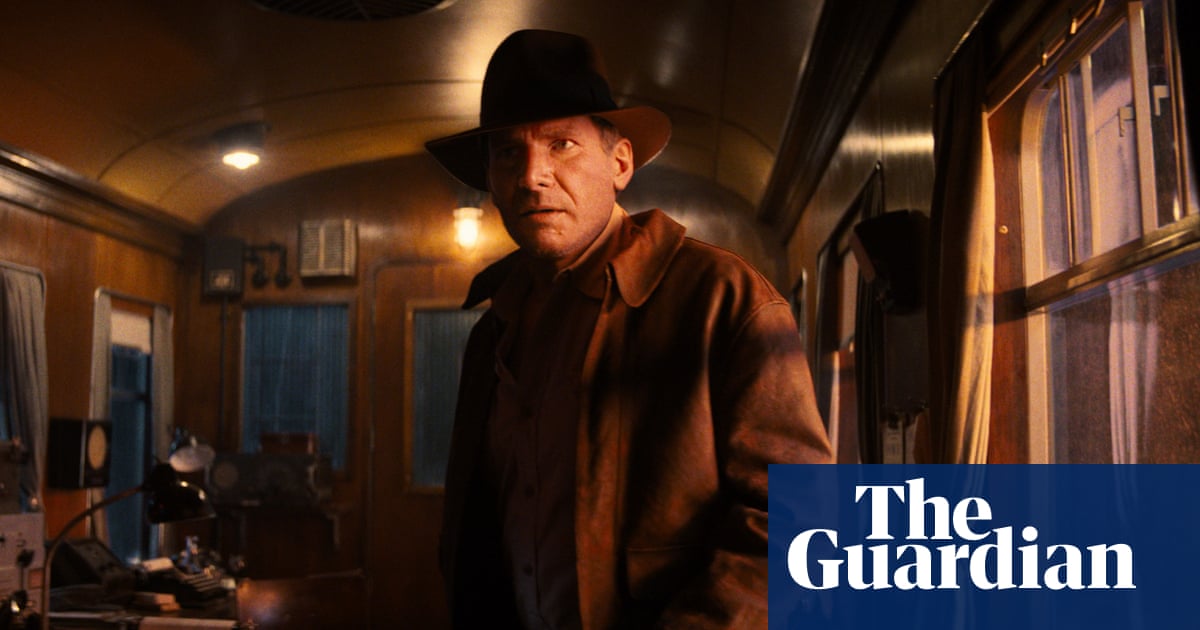
s an artist, you have to constantly ask yourself: ‘Why this story? Why now?’”, says Regé-Jean Page. The 30-year-old actor is video-calling from his apartment in Los Angeles and expounding on his latest role as the rakishly debonair Duke of Hastings in the Regency-era romance Bridgerton.
A frothy period drama bolstered by a lavish Netflix budget might not seem like the most pressing nor most relevant of artistic choices for Page to be making. Yet, he sees the eight-part series as a subversive act, because of its diverse cast injecting multiculturalism and a boundary-breaking sense of sexual intensity into a traditionally white, staid setting.
“It’s not colour blind casting because I don’t think it’s helpful to put brown skin in the show without putting brown people in the show,” Page says, referring to the contested notion of casting actors based solely on talent, rather than race, which has led in extreme cases to an erasure of race, such as Scarlett Johansson’s much-derided casting as a Japanese cyber-human in the 2017 film Ghost in the Shell. “This show is a glamorous, ambitious Cinderella fantasy of love and romance – I don’t know why you wouldn’t invite everyone to come and play in it, especially since we’re serving a global audience on Netflix. It takes so little imagination to include people, as opposed to how much thought and effort it takes to keep people out of these stories.”
Having grown up in Zimbabwe, the child of an inter-racial couple – his family relocated to London when he was 14 – Page has become accustomed to viewing seemingly ubiquitous stories from an outsider’s perspective. “Zimbabwe was still a relatively young country when I was living there and its post-apartheid society was only newly formed,” Page says. “Being a mixed-race child in that environment means that you have to think about crafting your own identity and you question why you belong in that world. You’re also not at the centre of the universe in Zimbabwe, so you watch these important places like London or New York make their decisions and you ride the ripples of that as they become waves for the rest of the world. It’s an outsider’s view that I’ve retained in my work and life today.”
This way of thinking – from both the dominant and marginalised perspective – is one that has served Page well in his career so far, especially in his breakout role playing Chicken George, the descendant of Gambian slave Kunta Kinte, in the 2016 reboot of the 70s classic drama Roots. “Roots was a massive responsibility because it is this foundational text in the States and it also resonates fairly strongly with pretty much any black community globally,” Page says. “I was made to watch this as a kid in Zimbabwe because this is a global history – one that we are still reckoning with, even if the British can try to detach themselves from that legacy of colonialism and slavery.”
That detachment is something Page sees Roots – and more recent shows such as Steve McQueen’s Small Axe – as having an active part in tackling. They all serve to build a nuanced picture of people of colour’s experiences in the western world. “As British people, we don’t often face what our role in history is. We’re only just beginning to do that,” Page says. “Storytellers have an incredibly important role in confronting that and continuing the conversation. We have to keep up the momentum, since we are beholden to our audiences to give them something of value and importance.”
One way in which this momentum was stoked during the past summer of Black Lives Matter protests was through a filmed dance performance Page devised with an old friend, Lanre Malaolu, at the Battersea Arts Centre, entitled Don’t Wait. “I felt this urgency to reconnect with the creatives I knew in London and to contribute to my community at a time when we were all apart,” he says. “We just made this piece almost as art for art’s sake, but also to try to help our community, since I am always asking myself how I can make my skills useful to other people. If you get creative enough, you can figure out how.”
Bridgerton, executive produced by Shonda Rhimes – the co-creator of long-running soapy hits such as Grey’s Anatomy and How to Get Away With Murder – might seem a world away from Page’s visceral exploration of identity and history in Don’t Wait and Roots. But Page thinks otherwise. “You realise that these characters are dealing with very 21st-century problems in the show; people have always had the same desires and needs, no matter whether it’s 200 years ago or now, it’s just dressed up in different clothes and shaped by different societal restrictions,” he says. “We’re seeing this Regency romance through a feminist lens, examining what masculinity means for a broken antihero like my character and how he can then allow himself to change and be loved.”
The result is a subtle subversion of the romance genre, giving greater agency to female characters such as the protagonist Daphne Bridgerton, played by Phoebe Dynevor, and her explorations of sexuality, while simultaneously weaving in the multiracial narrative of an alternative Regency society. Of course, all of this is still clothed in the swooning melodrama audiences have come to expect from the genre and the Bridgerton novels, written by Julia Quinn, creating something of a tonal see-saw veering from romance to explorations of race and class.
“Ultimately, you have to meet a realistic setting on screen with some imagination as a viewer, as that is what creates a story. The second you do that in this show, you will lose yourself in it,” Page says. With Bridgerton launching on Christmas Day, he hopes viewers encounter the series as a “warm Regency hug – a wonderful escapist fantasy of ambition and romance and a reminder of the joys of social connection in a year where we have struggled to be able to see one another and might still”.
Having been split between the US and UK for the past five years, Page is still uncertain about his Christmas plans, which are dependent on lockdown restrictions. Whether he is in London or LA, though, he will be eagerly awaiting audience reactions for his turn in the show, as well as for a smaller role in the Amazon-hosted 50s-set romance Sylvie’s Love. “I’ll be setting aside some time to engage with people and just reflect on the year, to see what stories I might be telling next.”












